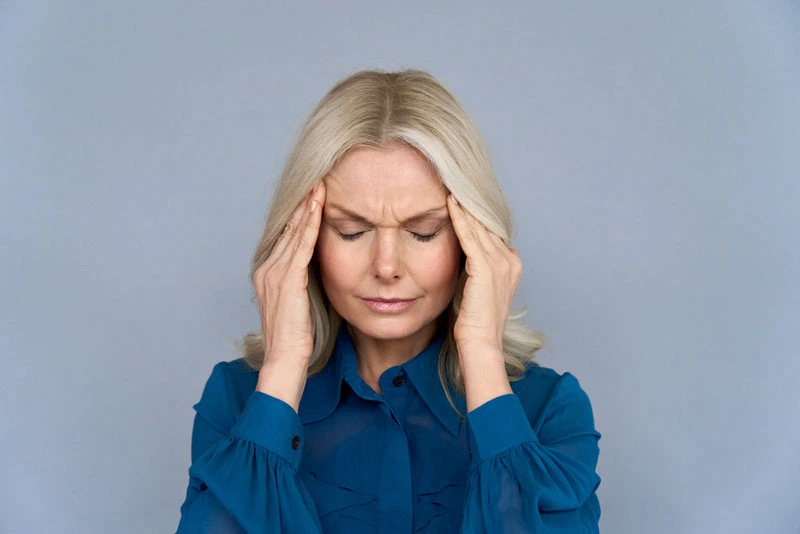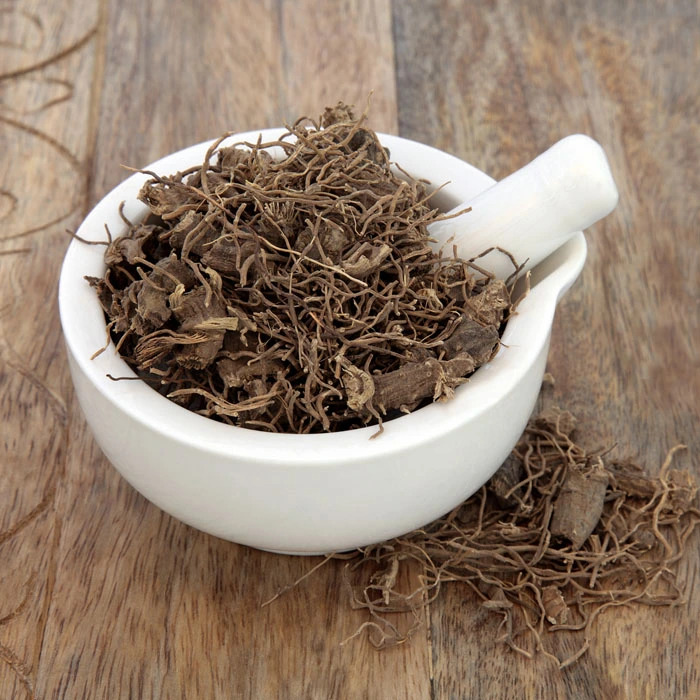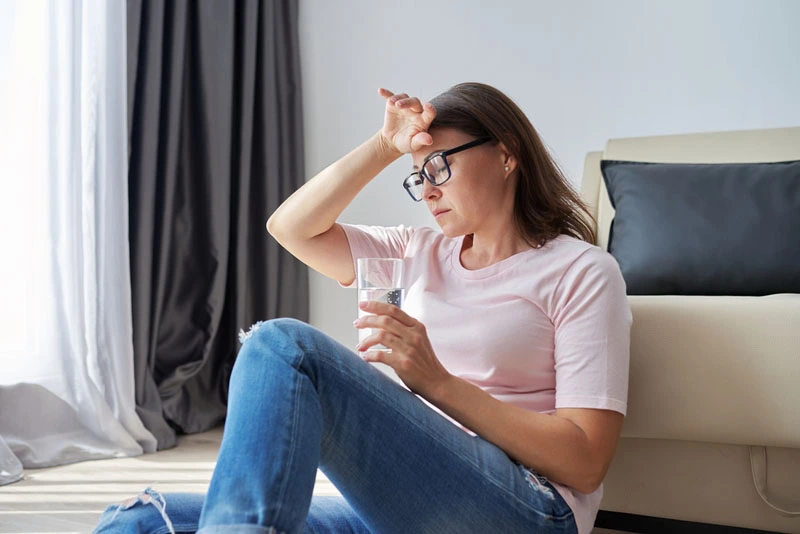Menopause, a natural process every woman undergoes, brings various symptoms that can disrupt daily life.
Approximately 6,000 women in the United States reach menopause each day.
Changes in the Body during Menopause
Menopause marks the end of a woman’s menstrual cycle, characterized by changes in estrogen and progesterone hormone levels. These hormonal shifts often lead to common menopause symptoms like hot flashes, night sweats, mood changes, weight gain, and sleep disruptions.
Up to 80% of women experience menopause symptoms such as hot flashes, night sweats, and mood swings.
Common Symptoms and Challenges of Menopause
Many women experience discomfort from symptoms such as hot flashes, night sweats, and mood swings. However, these can vary in severity, from mild irritability to significant bouts of depression, underlining the need for effective menopause treatments.

The Importance of Lifestyle Adjustments
Lifestyle adjustments form the foundation of managing menopause symptoms. These changes encompass diet, exercise, and sleep, serving as natural menopause treatments that work.
The Role of Diet
A diet rich in fruits, vegetables, and sources of calcium like kale and beans can ease menopause symptoms. Phytoestrogens found in foods like soy may also help balance fluctuating hormone levels.
Dietary changes, such as eating more plant-based foods, can reduce menopause symptoms in up to 50% of women.
Importance of Exercise
Regular exercise aids in weight management and can reduce risks of heart disease and diabetes, which may increase after menopause.
Exercise is the most effective natural treatment for menopause symptoms, with up to 75% of women reporting a decrease in symptoms after engaging in regular physical activity.
Significance of Sleep
Good sleep hygiene can alleviate insomnia, a common menopause symptom. Strategies may include reducing caffeine and alcohol intake and maintaining a cool, dark sleeping environment.
Top 7 Natural Remedies
Phytoestrogens: Exploring Sources and Benefits
Phytoestrogens, plant-derived compounds similar to estrogen, can relieve menopausal symptoms. Foods high in phytoestrogens include soy products, flaxseeds, and certain beans and lentils.
Black Cohosh: Detailing Its Uses and Effectiveness
Black cohosh, a plant native to North America, has been used for centuries to relieve hot flashes and night sweats.
Herbal supplements, such as black cohosh, can reduce menopause symptoms in up to 60% of women.

John’s Wort: A Look at How it Aids Mood Swings
Often used in Europe, this herb may help with mood swings and depression during menopause. However, it can interact with other medications, so seek medical advice before use.
Acupuncture: Understanding How it Can Alleviate Symptoms
Studies suggest acupuncture may reduce hot flashes and improve sleep quality in menopausal women, making it a viable treatment option.
Yoga and Meditation: Their Role in Managing Stress and Hormonal Balance
Yoga and meditation can manage stress levels, positively impacting hormonal balance and overall menopause experience.
Mind-body therapies, such as yoga and meditation, can reduce menopause symptoms in up to 70% of women.
Vitamin E: Its Benefits in Reducing Hot Flashes
Vitamin E, found in nuts and seeds, might help reduce the frequency and severity of hot flashes in some women.
Omega-3 Fatty Acids: Examining Their Role in Heart Health and Mood Regulation
Found in fatty fish, flaxseeds, and walnuts, Omega-3s can support heart health and mood regulation, offering menopause symptom relief.
Risks and Considerations
When exploring natural remedies for menopause, it’s important to consider potential risks and interactions. Although these treatments can be beneficial, they are not without side effects and may interact with other medications or medical conditions.
Side Effects and Interactions of Natural Remedies
Like conventional medicines, natural remedies also have side effects and can interact with other medications. For instance, St. John’s wort can interact with various medications, including antidepressants, birth control pills, and certain cancer drugs, leading to serious complications. Always consult a healthcare provider before introducing new supplements or therapies.
Understanding Individual Responses
Every woman experiences menopause differently, meaning the treatments’ effectiveness may vary from person to person. What works well for one woman might not work as well for another, reinforcing the importance of tailored care and consultation with a healthcare professional.
The Importance of Consulting a Healthcare Provider
As with all health-related decisions, consulting with a healthcare provider is paramount when considering natural remedies for menopause. They can provide information tailored to your health history and current medications, helping you make the most informed choice.
Frequently Asked Questions
How can good sleep hygiene help during menopause?
Maintaining good sleep hygiene can alleviate insomnia, a common symptom of menopause, by regulating the body’s natural sleep-wake cycle.
What are phytoestrogens, and how do they help?
Phytoestrogens are plant-derived compounds similar to estrogen, and foods high in them can relieve menopausal symptoms.
Can vitamin E interact with other medications?
Yes, vitamin E can interact with certain medications. Always consult a healthcare provider before starting any new supplement.




